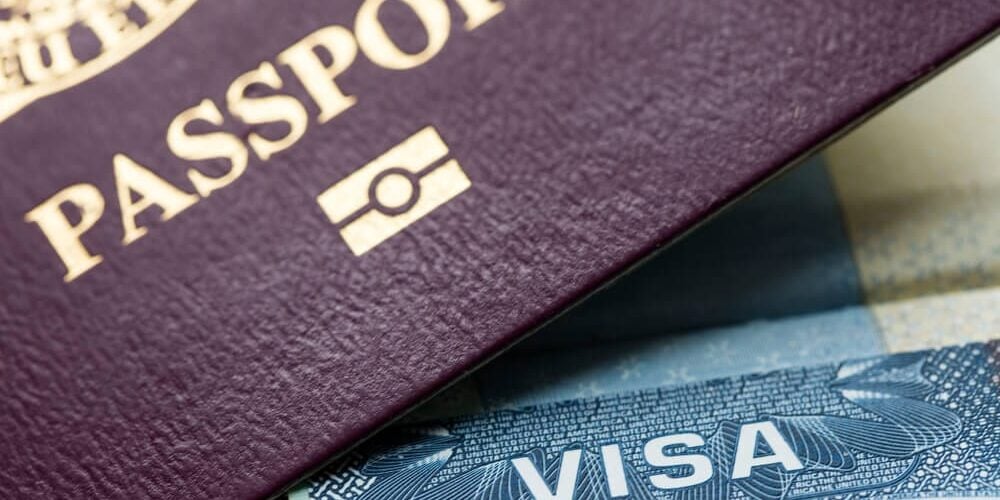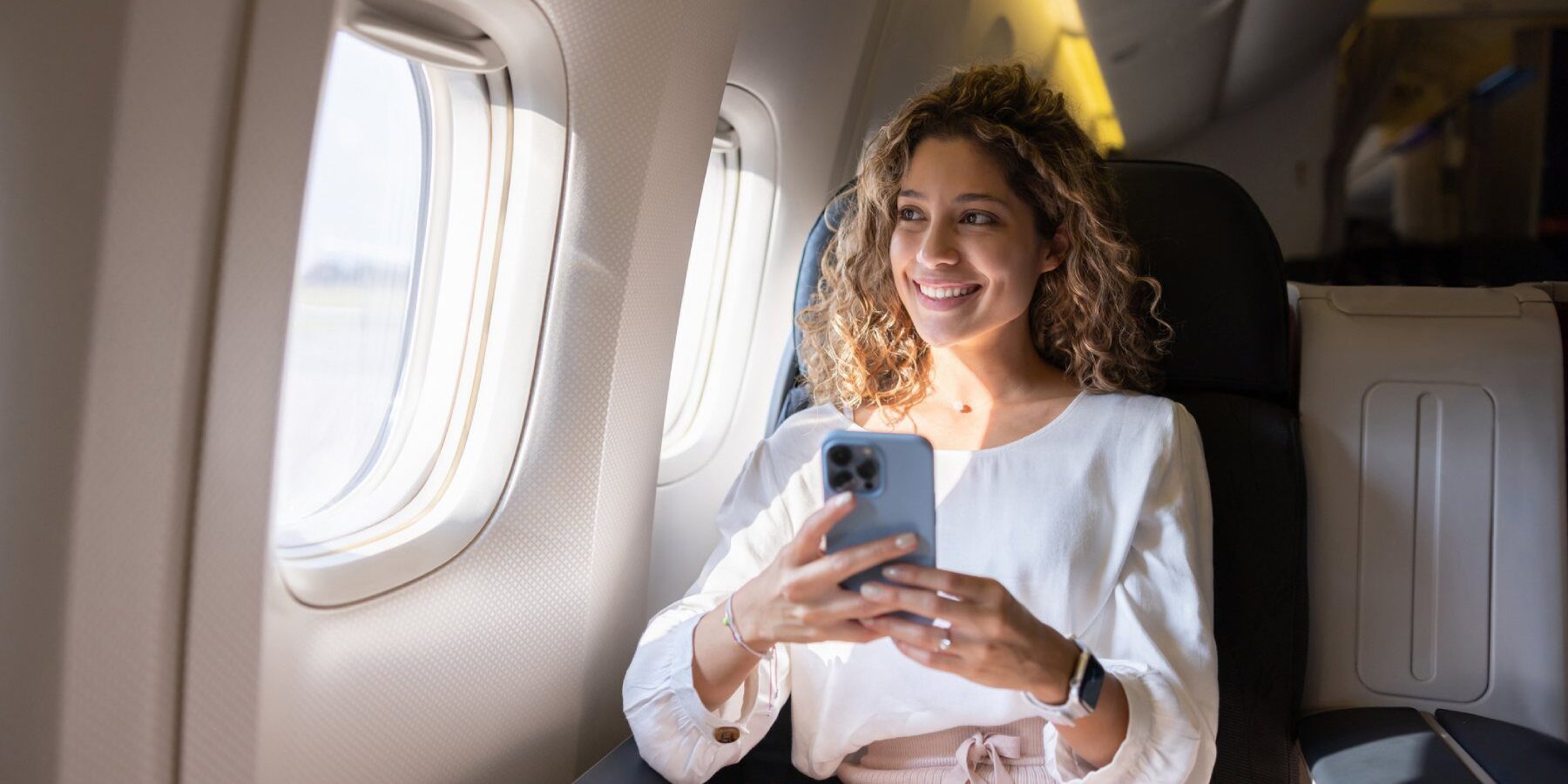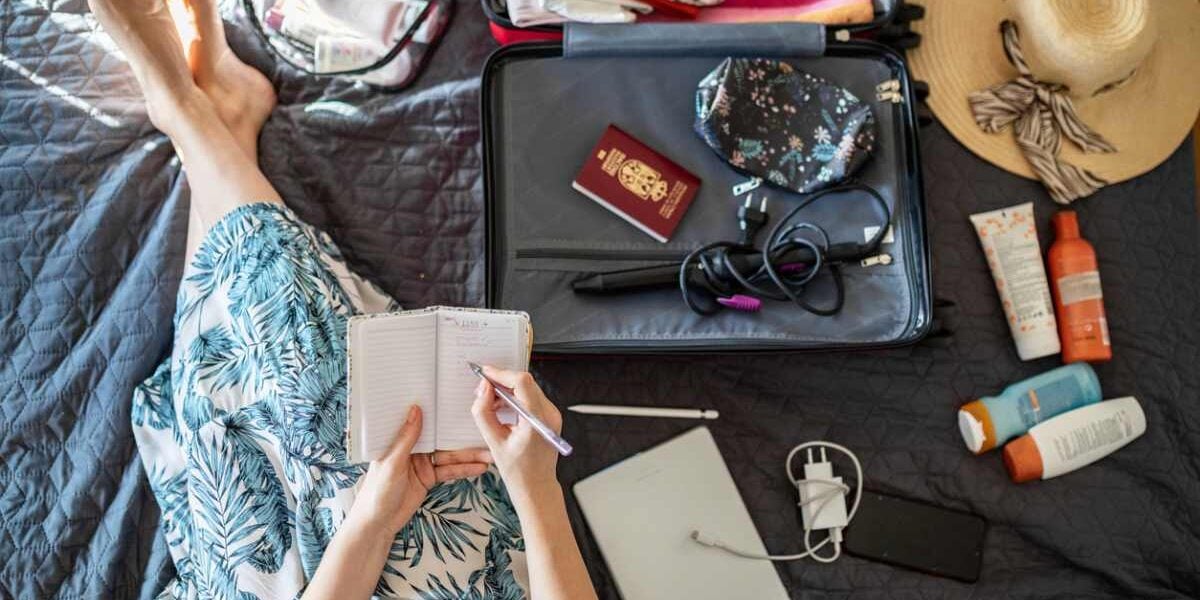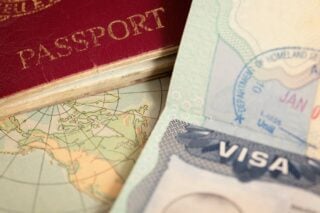
Preparing for Your Adventures Overseas
 Traveling abroad is an exciting way to explore new cultures, visit amazing places, and experience different traditions. But for first-time travelers, it can also feel a bit overwhelming. After all, there’s a lot to think about, such as where to stay, what to pack, and how to manage essentials like phone service and banking.
Traveling abroad is an exciting way to explore new cultures, visit amazing places, and experience different traditions. But for first-time travelers, it can also feel a bit overwhelming. After all, there’s a lot to think about, such as where to stay, what to pack, and how to manage essentials like phone service and banking.
However, the good news is that international travel doesn’t have to be complicated. With careful research and preparation, you can plan a smooth and enjoyable trip.
To help you get started, this article will guide you through everything you need to know, from choosing your destination and organizing important documents to buying travel insurance and more. We'll also share some helpful international travel tips for staying safe and healthy throughout your journey.
Traveling abroad is an exciting way to explore new cultures, visit amazing places, and experience different traditions. But for first-time travelers, it can also feel a bit overwhelming. After all, there’s a lot to think about, such as where to stay, what to pack, and how to manage essentials like phone service and banking.
However, the good news is that international travel doesn’t have to be complicated. With careful research and preparation, you can plan a smooth and enjoyable trip.
To help you get started, this article will guide you through everything you need to know, from choosing your destination and organizing important documents to buying travel insurance and more. We'll also share some helpful international travel tips for staying safe and healthy throughout your journey.
Choose Your Destination
Selecting your destination is one of the most exciting parts of planning an international trip, especially for first-time travelers. However, it can also feel overwhelming, as there are several factors to consider.
For instance, your budget plays a major role in where you go. Some destinations are more expensive due to their popularity or their distance from your location, so it’s important to plan accordingly.
Timing is another key factor. If you’re traveling during peak seasons or around popular events, like summer festivals or major holidays, airfare and hotel prices can rise significantly, affecting both your budget and the timing of your trip.

Find the Best Travel Insurance
- Compare multiple quotes and coverage options
- Work with an insurance expert at no additional cost
- Find the best plan for your needs and budget
If you plan to travel spontaneously or only have a short timeframe, your options may be limited. In that case, check out our list of the best destinations for day trips. For a simpler travel experience, consider visiting a country that doesn't require a visa, as this can make the planning process easier.
You might also consider taking a cruise, which allows you to see multiple destinations within a given timeframe while enjoying a hassle-free journey. In that case, be sure to read these cruise tips and get the right cruise insurance before you go.
Finally, think about the climate. Tropical destinations are perfect for relaxing on sunny beaches, while European countries attract those interested in rich cultural heritage and stunning architecture.
On the other hand, if you’re looking for winter sports, many regions around the world offer incredible skiing and snowboarding opportunities during the colder months. From the Alps to the Rocky Mountains, these destinations are ideal for those eager to hit the slopes and enjoy snowy adventures.
Gather the Right Documents
Having the necessary travel documents is essential for a smooth and hassle-free trip. Start by ensuring your passport is valid and won’t expire while you are traveling abroad.
Notably, many countries also require your passport to be valid for at least six months beyond your planned departure date, so checking its expiration date is crucial to avoid complications.
Some countries may also require a visa, so be sure to research the requirements for your destination and apply well in advance. It’s best to start the process six months to a year before departure, as some destinations may need more time to process applications.

In addition to your passport and any required visas, it’s a good idea to have other forms of identification on hand, such as a birth certificate, government-issued license, or student or military ID. These may be useful for verifying your identity, accessing certain services, or taking advantage of travel discounts.
If you plan to drive abroad, you may also need an International Driving Permit (IDP) in some countries. However, U.S. citizens typically don't need an IDP to drive in countries like Ireland, the UK, South Africa, Canada, or Mexico. Be sure to check the specific requirements for your destination well ahead of time.
By preparing these documents early, you can ensure smooth travel without any last-minute stress.
Read More: Passport vs. Visa: What's the Difference?
Book Your Plane Ticket
Flying is typically the most popular and often necessary way to travel abroad. While international flights can be expensive and time-consuming, our 7 secrets to booking affordable airline tickets can help you save money.
From setting fare alerts to knowing the best time to book, these tricks will help stretch your budget further, allowing you to spend more on fun experiences at your destination.
Seating is another important factor to consider. Where you sit on a plane can greatly impact your comfort, especially during long-haul flights. To make the most of your journey, check out our article on the pros and cons of aisle versus window seats, where we offer some helpful tips for securing your ideal spot on your next flight.

For added comfort during overnight flights, be sure to pack a few essentials like a pillow, blanket, and earbuds to manage cabin pressure. Chewing gum can also help prevent your ears from popping. Additionally, consider packing a carry-on with important items in case your checked luggage is delayed or lost.
To save time waiting in line at the airport, remember to check in online and consider applying for TSA PreCheck if you're flying from the U.S. This program offers faster security screening with shorter lines, helping you get to your gate more quickly.
These simple steps will help streamline your travel experience and make the journey smoother.
Buy Travel Insurance
Once your flight is booked, it's a good time to consider buying travel insurance to protect your trip in case something unexpected happens before you depart.
Travel insurance can provide peace of mind by covering various events, such as trip cancellations, medical emergencies, and lost luggage. To choose the right plan, it's important to understand the different types of coverage available and select one that aligns with your needs.

Find the Best Travel Insurance
- Compare multiple quotes and coverage options
- Work with an insurance expert at no additional cost
- Find the best plan for your needs and budget
The type of insurance you need may vary depending on your destination. Check out our article on travel insurance and safety advice by country for country-specific tips.
To help you make an informed choice, be sure to explore our detailed article on international travel insurance, where we break down the coverage options to suit your travel needs.
Read More: How to Buy Travel Insurance
Notify Your Bank
Before leaving on your international trip, be sure to notify your bank and credit card companies about your travel plans. This helps prevent them from freezing your cards due to suspected fraudulent activity when you use them abroad.
While you're at it, check if your bank charges foreign transaction fees and review the exchange rates for converting your currency to the local one at your destination. This can help you avoid unnecessary costs while traveling.
Security should also be top of mind. Pickpocketing can be a concern in tourist hotspots, so consider investing in theft-proof items like a money belt or an RFID-blocking wallet to protect your money.
Finally, remember not to carry all your debit and credit cards. Limit yourself to just the essentials so you'll still have access to your funds if you lose your belongings.
You might also want to explore the best apps for managing your money abroad, making it easier to track spending, transfer funds, or find local ATMs with the best exchange rates.
Read More: The Best International Credit Cards
Arrange Mobile Phone Coverage
Before you travel, make sure your phone is unlocked so you can use it with different networks abroad. Depending on your destination, you may need to purchase a local SIM card and insert it into your phone to connect with local carriers.
Other options for staying connected include:
- Pay-as-you-go plans
- Prepaid international plans
- Localized data plans
- Dual SIM phones
- App-based solutions
It's also good to check with your mobile provider about international roaming charges, as these can add up quickly. Many countries offer extensive Wi-Fi access in hotels, cafes, and public areas, so make sure to take advantage of it to save on data usage.
For additional peace of mind, consider saving emergency contact numbers for your destination on your phone in case you lose connection.
For more details on how to stay connected abroad, check out our article on international cell phone options. Our International Calling Codes tool also helps you locate the right one for every country in the world.
Research the Culture and Language
Traveling internationally often means encountering a language and culture that’s different from your own. While this adds excitement and adventure, it can also present challenges.
Researching your destination's culture before you go will help you avoid misunderstandings and ensure a smooth trip. By familiarizing yourself with local customs and etiquette, you can navigate your travels with confidence and reduce the likelihood of culture shock.
Cultural sensitivity is also key. For instance, many cultures have specific expectations regarding dress, grooming, and manners, while others place a strong emphasis on greetings and respect. Being mindful of these nuances will help you avoid unintentional faux pas and show your appreciation for local traditions.
Learning a few key phrases in the local language, such as greetings and polite expressions, can also help build rapport and make your travels more enjoyable and memorable.
Make a List of What to Pack
Now, let's dive into the fun part – packing! When traveling abroad, it's essential to pack wisely. You don't want to overpack and be burdened with heavy luggage, but at the same time, you don't want to forget any essentials.
Here's a guide to help you pack efficiently for your trip:
Clothing
When selecting clothes for your journey, consider three key factors: the weather, cultural expectations, and your planned activities.
Weather
Temperature and conditions can vary widely depending on your destination. For example, if you're traveling to a place where it’s hot during the day but chilly at night, you'll need both warm and cold-weather clothes. Be sure to check the weather forecast so you're prepared for the shifts in temperature throughout the day.
Culture
Every destination has its own dress norms, so it's essential to research the cultural expectations around clothing. In some places, modest attire may be required, or there may be guidelines about what’s considered appropriate in public spaces. Understanding these cultural differences will help you blend in and avoid unintentionally offending locals.
Itinerary
In addition to sightseeing and casual outings, you may also have the opportunity to attend a social event or enjoy a night out. Be sure to pack a nicer outfit for such occasions. If you're traveling for business, include a comfortable outfit for any downtime or local sightseeing.

And if outdoor adventures are on your schedule, don't forget sturdy walking shoes and comfortable clothing. You may also want to pack bug spray and sunscreen to protect yourself from insect bites and harmful UV rays, especially in regions with intense sun exposure or a high risk of mosquitoes.
Medications
You can’t leave home without your vital medications! Before heading abroad, ensure you have enough prescription medication to last the duration of your trip, plus a few extra days in case of any travel delays.
If you are going away for more than a month, consult your doctor ahead of time to make sure you can get your prescriptions filled early, saving you the trouble of finding a foreign pharmacy.
Be sure to pack your medications in their original packaging with the prescription label clearly visible. This will make it easier for you to manage your medication during your trip and will be helpful if you need to explain them at customs.
It’s also a good idea to bring over-the-counter medicines you regularly use, as they may not be readily available in the country you're visiting. By planning ahead, you can avoid the stress of finding the right medication when you're abroad.
Read More: Traveling Internationally with Prescription Medication
Health Precautions
When preparing to travel abroad, ensuring your health and safety should be a top priority. Before you go, make sure your immunizations are up-to-date to protect yourself from diseases that may be more common in certain regions.
Consult your doctor or visit a travel clinic well in advance of your trip to determine which vaccines are required or recommended for your destination. This ensures you are adequately protected and gives vaccines enough time to take effect before your journey.
Carrying a mask can provide added protection in areas where respiratory diseases or air pollution are prevalent. Packaging hand sanitizer for easy cleaning is also a good idea when soap and water aren't available.
Be sure to check the local conditions of your destination and plan accordingly. For example, if you're traveling to an area with a history of malaria outbreaks, bring long-sleeved clothing, insect repellent, and a mosquito net for sleeping. If sandstorms are common in the region, consider packing protective facial gear to shield your face from dust and debris.
Technology
Staying connected while traveling abroad is essential, both for practical reasons and staying in touch with loved ones. Begin by packing your mobile phone and charger, which are vital for communication and navigation. Depending on your destination, you might also need a plug adapter to charge your devices.
While many accommodations, such as Airbnbs, provide Wi-Fi, it’s wise to bring a portable global internet router for reliable internet access while on the go. This is particularly useful in remote areas or places where Wi-Fi may be spotty. For added security, consider using a VPN when accessing public Wi-Fi networks.
Read More: Top 4 Internet Options While Abroad
Documents
Before you travel, it’s crucial to have all your important documents in order. Start by making copies of your ID, travel itinerary, and any other essential paperwork.
It’s also important to create a list of emergency contacts, including phone numbers for the nearest embassy, local police, and hospital. These could be lifesaving in an emergency. Also, include contact information for friends or family members in your host country who can help if needed.
Be sure to write down contact details for friends and family back home so medical personnel can easily reach them if necessary. Store copies of your documents securely, either digitally or in a separate location, to protect them in case of loss or theft.
By organizing these documents and emergency contacts, you'll have peace of mind and be well-prepared for any unexpected situations during your trip.
Traveling with Children or While Pregnant
Traveling with children requires a bit more preparation and care. Before your trip, it’s essential to have a conversation with your little ones, setting clear expectations and explaining the importance of staying close to you for their safety. This will help them feel more secure and know what to do in unfamiliar situations.
Just as you plan for your own needs, make sure to prepare for your children's. Pack their essentials, including clothing, snacks, any necessary medications, and a few activities to keep them entertained during the journey.
If you're traveling while pregnant, you’ll also need to consider your comfort. Though your baby may not yet be born, your body is undergoing changes that might require additional care.
Be sure to pack extra items like snacks, water, and anything that will help make long flights or trips more comfortable. Also, consult with your doctor about any specific travel precautions based on your stage of pregnancy.
How to Stay Healthy While Traveling Abroad
While traveling is about discovering new destinations, staying healthy and safe along the way is also important. That way, you can fully enjoy your experiences.
Our article on staying healthy while traveling offers practical tips for maintaining your well-being on the go. From choosing nutritious food to staying hydrated and managing stress, these strategies will help you feel your best during your travels.
It’s also important to be aware of potential health risks specific to your destination. Traveling exposes you to new germs, unfamiliar food, and environmental factors that may affect your health.
In some regions, insect-borne diseases or food poisoning may be common concerns. You may also encounter familiar illnesses like the flu or the common cold, so it’s wise to take preventive measures.

Protecting yourself against COVID-19 should also remain a priority. For additional guidance, check out our article on how to avoid common illnesses while traveling abroad.
Even with precautions, illness can still occur, which is why investing in comprehensive travel insurance is a smart decision. It provides essential coverage and peace of mind, ensuring you are protected if the unexpected happens.
On a brighter note, travel also offers mental health benefits, giving you the opportunity to refresh, recharge, and grow. By prioritizing both your physical and mental health, you can make the most of your adventure, creating lasting memories and fully immersing yourself in the travel experience.
Travel Safety Tips
Just as health is important, so is staying safe during your travels. Being prepared can make all the difference, and choosing to visit one of the world's safest countries can help ease your mind.
Solo travel can be challenging, especially for women, but following key safety tips can help mitigate risks. For example, researching your destination, sharing your itinerary with a trusted friend, carrying personal safety devices, and connecting with other solo women travelers can help you enjoy your trip with peace of mind.
It is also important to review updated travel advisories for your destination. These provide crucial information about potential risks, helping you make informed decisions to ensure your safety.
If you're an American citizen, it's a good idea to register for the Smart Traveler Enrollment Program (STEP) with the U.S. Department of State. This will allow U.S. embassies near your destination to know your location and contact you in case of an emergency.
Read More: Solo Trips for Women: The 10 Best Countries
The World Awaits You – Safe Travels!
Traveling abroad can be an incredibly rewarding experience, offering opportunities for personal growth, discovery, and unforgettable memories. With the right preparation and mindset, your overseas adventure will become a journey you’ll cherish for a lifetime.
At International Citizens Group, we’re committed to supporting you every step of the way. Over the years, we’ve helped hundreds of travelers succeed in their global explorations.
With the resources we’ve shared, you’ll be fully equipped to navigate every stage of your journey – whether it’s booking your trip, immersing yourself in new cultures, or returning home with incredible stories to tell.
So, get ready to pack your bags and embrace the adventure ahead. The world is waiting for you!

Find the Best Travel Insurance
- Compare multiple quotes and coverage options
- Work with an insurance expert at no additional cost
- Find the best plan for your needs and budget




